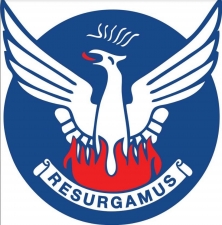Search

 As schools increasingly look to fee paying students to boost their income, Ashburton College is planning for a future that could count a roll with more than 30 international students each year.
As schools increasingly look to fee paying students to boost their income, Ashburton College is planning for a future that could count a roll with more than 30 international students each year.
Currently the school has 20 international students from six countries – Taiwan, Germany, Japan, China, Argentina and Korea. And as it works to boost numbers, the number one driver will be to ensure that diversity is retained, principal Ross Preece says.
Fee paying students are becoming big business for schools and there is fierce competition, not just nationally but internationally, with New Zealand competing with Australia, England and Canada in the lucrative market.
Preece believes that building good relationships with school communities in target countries is key in parents choosing a particular country and school for their child.
“We’ve had a couple of students from China, who’ve been very successful, come through the college and we’re now getting their friends’ children coming here. It’s about positive experiences, positive relationships, word of mouth,” he said.
The college was working to grow its international market but it would be doing that in a way that ensured plenty of cultural diversity, rather than drawing students from just one country, Preece said.
“It’s important to us to provide a good cultural mix.”
Using the Ministry of Education’s formula that suggested a school could have five per cent of its roll as international students, the college could have up to 50 students each year, but Preece said he’s happy to set 30 as the school’s goal.
As a rough guide it costs a family $25,000 to send a child to school in New Zealand. That fee includes airfares, accommodation and school fees. The college arranges private accommodation for students with host families paid about $240 a week.
“It’s run as a business and we have a homestay co-ordinator and a dean for students on staff,” Preece said.
Students come to New Zealand for a range of reasons. Some to specific schools because they may offer a sport or education speciality while others come for academic reasons and to gain English language proficiency.
Some came for six months or a year, some for three years, but most between one and two years, he said.
The college had been active in the international student area for a number of years, but the programme had been revitalised over the past three years, Preece said.
By Sue Newman © The Ashburton Guardian - 9 May 2019


